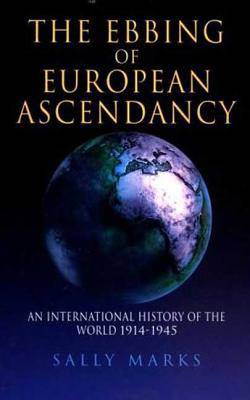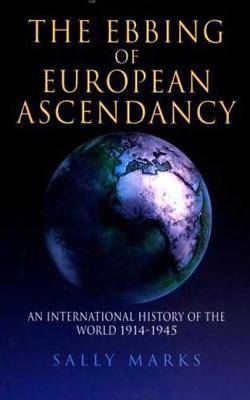
- Afhalen na 1 uur in een winkel met voorraad
- Gratis thuislevering in België vanaf € 30
- Ruim aanbod met 7 miljoen producten
- Afhalen na 1 uur in een winkel met voorraad
- Gratis thuislevering in België vanaf € 30
- Ruim aanbod met 7 miljoen producten
Zoeken
The Ebbing of European Ascendancy
An International History of the World 1914-1945
Sally Marks
Paperback | Engels
€ 203,95
+ 407 punten
Omschrijving
In a space of little over 30 years, the world was transformed. The European great powers were no longer ascendant, even if that was not yet fully revealed to them, and the US, a regional power as of 1914, now belonged to the wholly new category of "superpower." What happened in this short period to work such a dramatic change? The answer lies neither in Europe alone nor in the West more broadly, and one of the virtues of this bold new international history of the period that Africa, Asia, the Middle East, and Latin America are allowed to play their parts. It treats the Asian and European crises and wars of 1931-45, for example, as a single interlocking whole, as world leaders at the time were forced to do. It also acknowledges to an unusual degree the importance of imperial and economic circumstances in framing the policies of states towards one another.
Specificaties
Betrokkenen
- Auteur(s):
- Uitgeverij:
Inhoud
- Aantal bladzijden:
- 480
- Taal:
- Engels
Eigenschappen
- Productcode (EAN):
- 9780340555668
- Verschijningsdatum:
- 1/02/2002
- Uitvoering:
- Paperback
- Formaat:
- Trade paperback (VS)
- Afmetingen:
- 155 mm x 239 mm
- Gewicht:
- 716 g

Alleen bij Standaard Boekhandel
+ 407 punten op je klantenkaart van Standaard Boekhandel
Beoordelingen
We publiceren alleen reviews die voldoen aan de voorwaarden voor reviews. Bekijk onze voorwaarden voor reviews.








